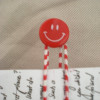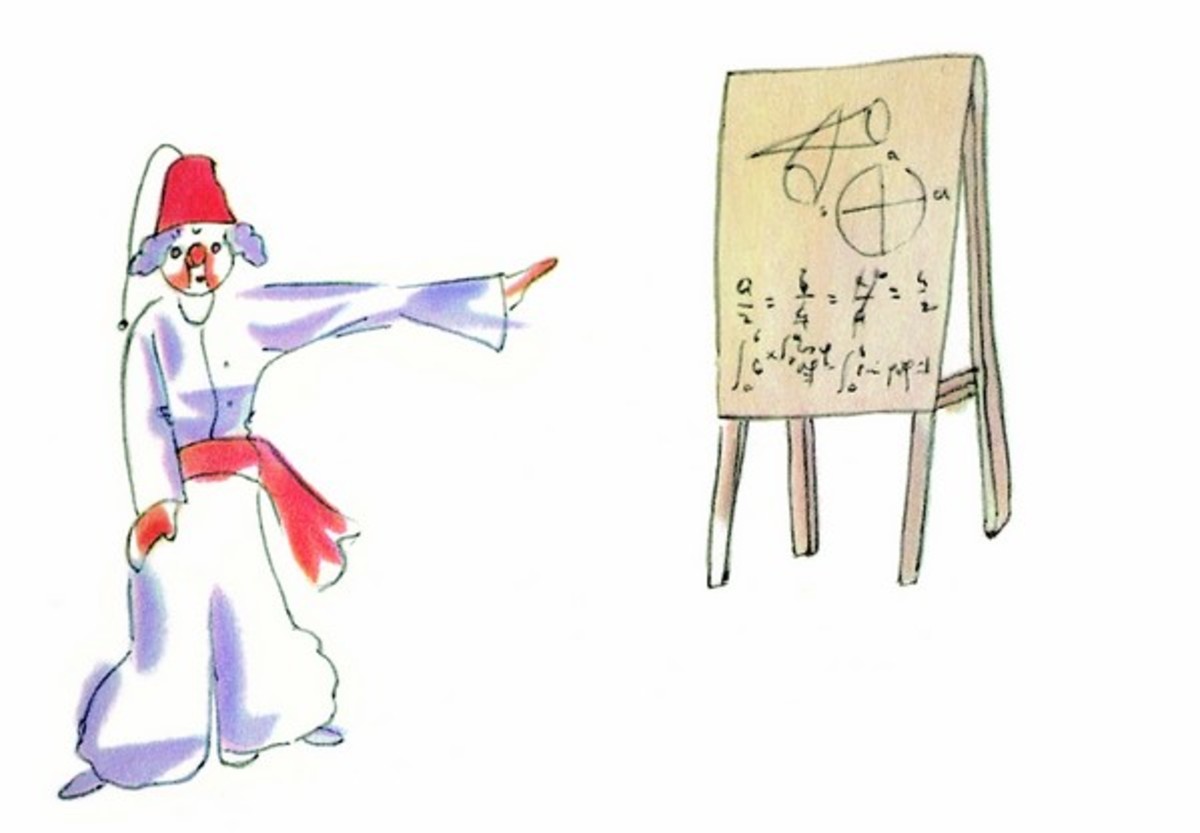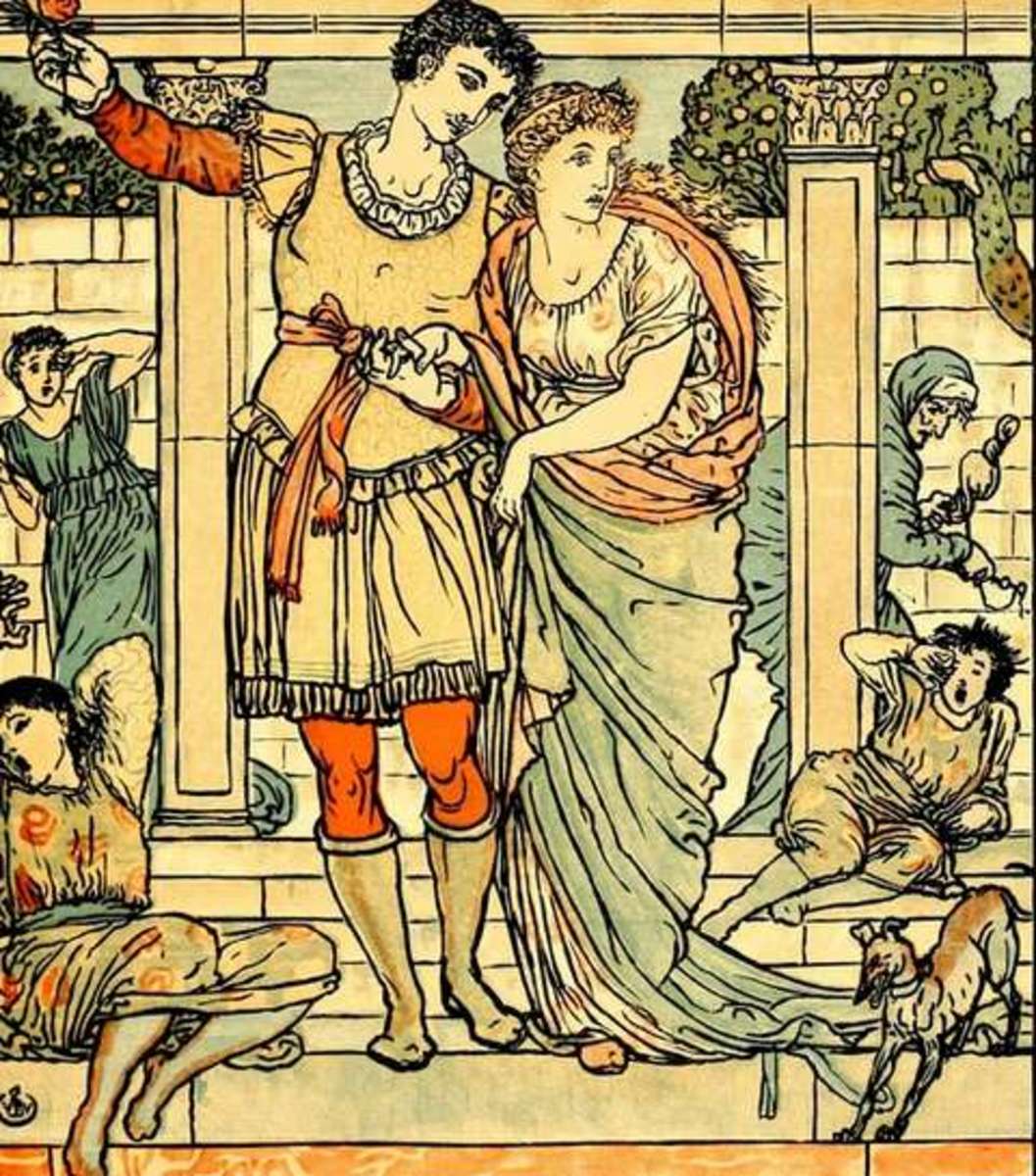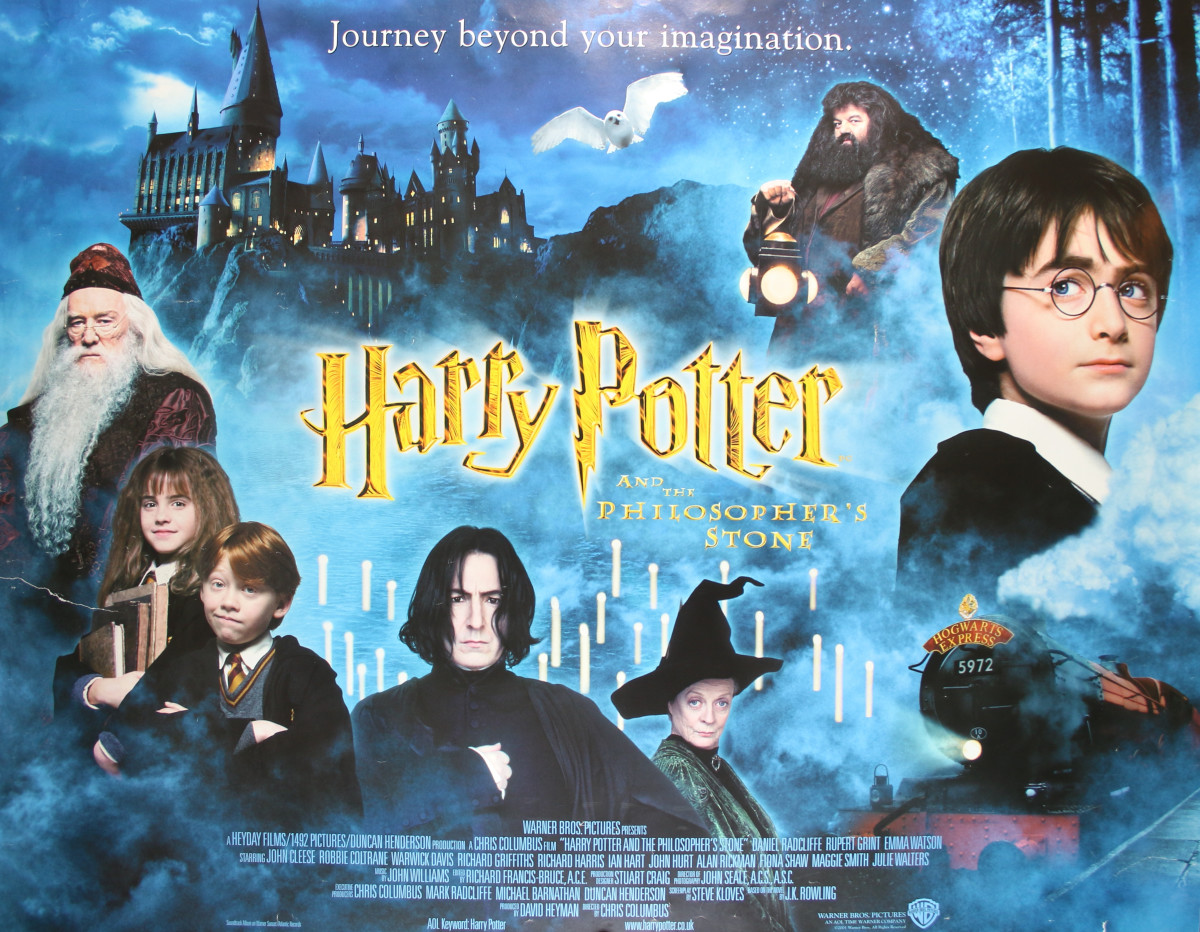The Little Prince by Antoine de Saint-Exupéry
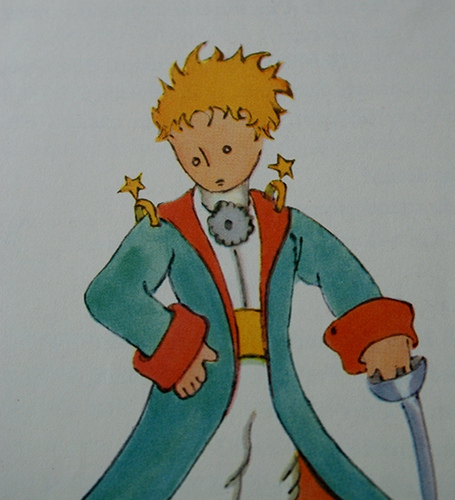
It is a classic story more dedicated to grown-ups than children. There is more depth to it than plain storytelling.
The Pilot Meets The Prince
An air pilot finds himself fixing his broken motor engine in the Sahara desert when he meets a charming boy he calls the little prince. As if his sudden appearance, alone and without a hint of worry or exhaustion is not mysterious enough, the boy requests him to draw a sheep.
The pilot, in his irritation, draws a box and explains the sheep is inside it. In his surprise, it is exactly how the prince wants it. This drawing opens the connection between him and the boy; through it he learns, little by little, the life of the little prince. Thus, the story begins.
There are three aspects worth writing about in the story although it may strictly be on a personal note. First, the characteristics of children; second, the understanding or lack thereof of grown-ups; third, and most importantly, the philosophy of friendship.
The Little Prince Meets The Fox
The boy’s encounter with a fox on planet Earth seems to be the most meaningful of all his travels.
All throughout his visits to different planets, he searches for someone who makes sense; one who can provide answers to his defect of not seeing clearly, not understanding, not knowing what is the most important. He wants to find people. He looks for friends. He leaves his planet to be happy.
Later on he confides to the pilot that he should have considered his rose’s way of scenting his planet besides its proud words. But at the time he does not know how to love his rose. He takes her words and actions as vain and immodest, which offend him and eventually make him sad. She makes a point in saying that they are both foolish not looking at what they do for each other instead. She secretly cries when her friend left.
Now, here comes the fox teaching the little prince how to understand; that for him to understand, he should be a friend. In order to have a friend one has to tame and observe the proper rites; to be a friend is to be tamed.
This is an aspect grown-ups gradually forget along the way notes the fox.
There comes a point when we protect our friends from getting hurt or humiliated when we know better than what other people say. We defend them against spiteful blows. When a close friend leaves or forgets, meanwhile, it is like a part of us is missing.
Friendship, more than words, is the physical presence of another. Someone’s five minute silent, conscious, and caring presence may weigh more than ten minutes of babble, for words, adds the fox, are the source of misunderstandings.
It is about being there when it is time to be there, and this makes a day different from any other days. There is anticipation and excitement when a friend’s visit nears, not the kind of “friend” who sees you for an ego trip. When it is time to say goodbye, somehow this friend leaves something to remember him or her by, maybe a kind word, a big smile, laughter, or the color of his or her hair.
The fox warns the prince, he is responsible for his rose. It may well describe friends close to us.
"...she is more important than all hundreds of you others: because it is she that I have watered; because it is she that I have put under a glass globe; it is she that I have listened to....Because she is my rose."
— The Little PrinceWhat makes someone unique and important, then, to another, is the quality time spent knowing how he or she is, patiently and faithfully. “It is the time you have wasted for your rose that makes your rose so important,” says the fox. It is far from online presence netizens crave in this generation although it largely compensates for physical absence nowadays. It leaves me thinking which is more important: to be an online present friend or to be a physically present friend. To be both are remarkable.
The little prince all the while tames the pilot until it is time to leave. He leaves him because he misses his planet, his rose. Now the pilot misses him, his laughter. He weeps a little. He remembers him only at a distance by looking at the stars.
But more than physical attributes is an understanding, like a bond, of having known someone better than others overtime. It is a choice to know, accept, and care for someone.
The Little Prince Meets Grown-ups
The little prince is consistent in his view about grown-ups never understanding “matters of substance” but worrying about “matters of consequence”.
Businessman steals ownership of the stars because no one has and only wants more. Conceited man seeks admirers with their praises but has no admirers to begin with. Tippler wastes his time drinking and gulps in shame. Geographer lists down but does not know where seas, rivers, and deserts are actually. King rules no one and nothing in particular but insists obedience. Lamplighter faithfully follows orders even if they become unreasonable but refuses a simple piece of advice for his sake.
He finds them strange. How demanding it is to level with adults who look, so to speak, enlightened and learned, but missing out on the essentials. Grown-ups, for the little prince, basically know the “what” and the “when” of things, not much about the “why” and the “how” in them.
Children spot the new and amazing in ordinary circumstances. More often they are excited and surprised, while grown-ups lose enthusiasm. Adults seem fed up with the usual around them, sometimes even bored with it.
The author writes that children should always show great forbearance toward grown-up people. It is clear to me here that children adjust to adults not the other way around. It is as if it addresses all grown-ups.
A particular scene in the story is when the little prince innocently makes fun of the pilot coming down from the sky just like him, but the pilot does not find it funny at all. Another is when the boy laughs at the pilot’s drawings. It is not meant to be insulting. Only the pilot thinks it is.
But there are adults out there who can really understand.
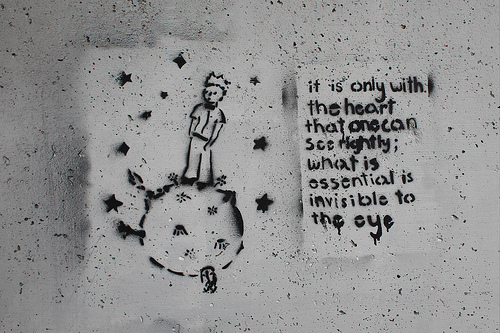
The Little Prince As A Child
Who could have imagined there is a sheep inside the box the pilot draws for the prince? Only both of them know, at least the pilot says so, but it is the boy who strongly believes there is and not without concern with what is inside it.
The little prince keeps on asking until his many questions are answered. This is how curious children can be, but for adults this is quite irritating.
Children ask because they simply want to know and sometimes they are persistent in what they want. It is enough to have an answer but once satisfied they go to the next inquiry. They are not embarrassed because they know that they do not know. They do not pretend they understand most of the time. It is up to adults either to encourage this thirst for knowledge with mindful answers or disregard their sheer curiosity altogether.
What the pilot sees at first is limited whereas the boy goes beyond what is there. It is this imagination that is telling of children. It makes them explore and dream big since they are newly introduced into the world and the possibilities seem endless. Children may believe what adults tell them but they have their own ways of looking at things.
Children, as well, are joyful and cheerful, just like how the author portrays the prince. They find happiness in little things wherever they are and whatever their situation might be.They have a natural joy, something inherent, like a seed to be nurtured and encouraged along the way. If this good seed is watered every now and then, this may make them dream, aspire to be better. Each of them hides a potential who knows what but it is there.
This natural joy I choose to pick up more than their "craziness." Adults cannot stand this craziness at some point since children can also be very loud.
There are times children understand more than grown-ups, while grown-ups lose the childlike sense of joy.
© 2011 chelle
